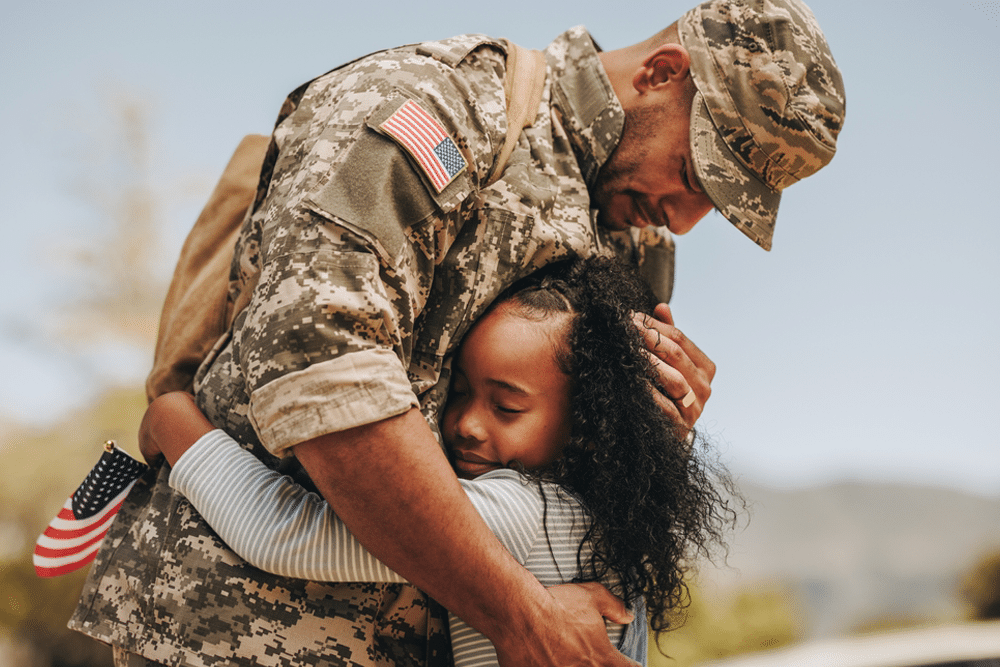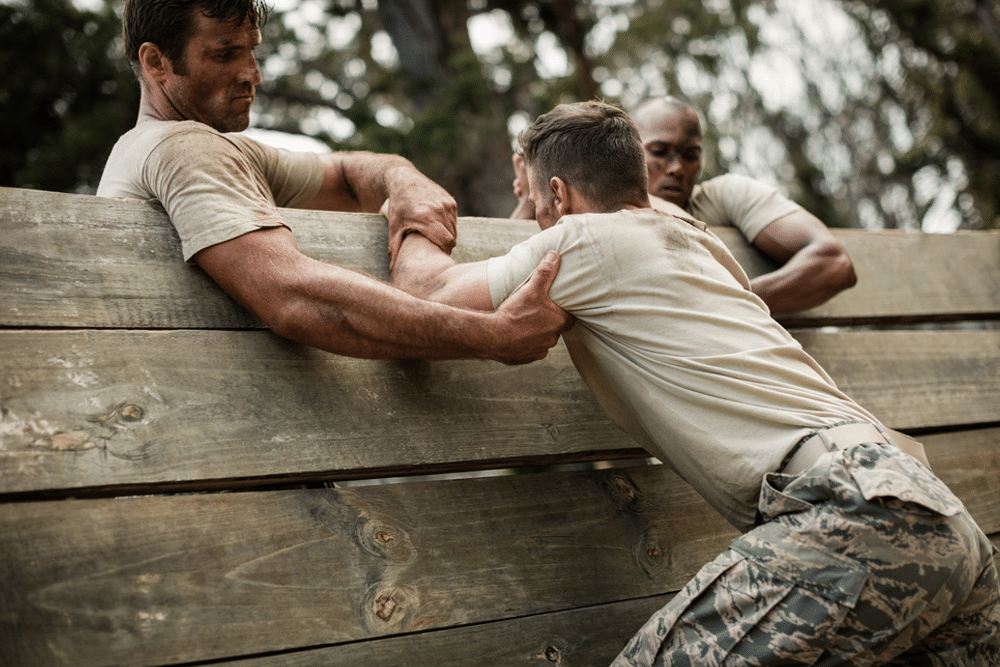Men and women who serve in the military face a wide range of physical and emotional challenges. Along with the physical demands of their job, they may also experience traumatic events, prolonged separation from loved ones, and exposure to high-stress levels. Unfortunately, these experiences can lead to addiction and other mental health problems like PTSD, depression, and anxiety disorders.
According to the 2019 NSDUH:: Veteran Adults, over 1 in 13 veterans in the United States have been diagnosed with a substance use disorder, slightly higher than the general population. However, findings also show relatively low illicit drug use among active-duty personnel. That’s mostly because of the zero-tolerance policies, mandatory random drug testing, and lack of confidentiality in the military. A positive drug test could lead to a dishonorable discharge and even criminal prosecution for the service members.
But while these aspects deter use, they may also add to the stigma and discourage those seeking help. For instance, more than 50% of military personnel believe reporting their mental health issues might negatively affect their career.
Generally, the rate of illicit drug use among military personnel is relatively low compared to the general population. Also, reports show that pain medication use and cigarette smoking have reduced in recent years. But the binge drinking rates remain higher among military personnel than civilians.

Why People in the Military Are Susceptible to Addiction
Studies have shown that military personnel are more likely to engage in binge drinking than the general population. This is partly due to the unique culture and stressors of military life, including the pressure to conform to a heavy drinking culture, frequent deployments, and exposure to traumatic events. Here are more reasons why people in the military are susceptible to addiction:
Exposure to Trauma
Service members are often exposed to traumatic events such as combat, violence, and death. These experiences can lead to post-traumatic stress disorder (PTSD), depression, anxiety, and other mental health issues that increase the risk of addiction. It’s estimated that between 37 and 50% of Iraq and Afghanistan war vets have been diagnosed with a mental disorder.
High-Stress Environment/Situations
Military personnel are frequently placed in high-stress situations, such as being deployed to war zones and working long hours in demanding environments. And even when not working, some report feeling on edge while they wait for when they might be called to duty.
Add that to other issues like violence in relationships, reintegration stresses, sleep disturbances, traumatic brain injury (TBI), violence in relationships, etc., and you see why some turn to drugs and alcohol to cope or numb their feelings.
Separation from Family and Friends
Being separated from loved ones for extended periods can lead to feelings of loneliness, depression, and anxiety. This emotional strain can cause some individuals to turn to drugs or alcohol to cope with the stress.
Easy Access to Drugs and Alcohol
Military personnel often have access to drugs and alcohol through social networks and military resources. This easy access can make resisting temptation more difficult and increase the risk of addiction. A quick look at drug use in the military during the Vietnam War reveals that soldiers used heroin because of its availability and the fact that it helped them mask their feelings.
Lack of Effective Support
Many military personnel may hesitate to seek addiction help due to fear of repercussions or stigma. Additionally, the unique experiences and demands of military life may make it difficult for traditional addiction treatment programs to address the specific needs of this population effectively.
Substance Use, Mental Health, and Military/Veteran Life
Mental health and addiction often co-occur. This is often referred to as dual diagnosis. Studies show that individuals with mental health issues are likely to have addiction issues and vice versa. According to the Department of Veterans Affairs, more than 2 of 10 veterans with PTSD also have SUD.
Military personnel are exposed to high levels of stress and trauma during their service, which can lead to mental health conditions, PTSD, depression, anxiety, and suicidal ideation. So, they may turn to drugs or alcohol to self-medicate or numb their feelings. This can provide temporary relief, but continued use can lead to SUD.
At the same time, substance use can trigger or exacerbate depression, anxiety, PTSD symptoms, and suicidal ideation. A SUD can also interfere with the effectiveness of mental health treatment and make it harder to manage symptoms. This can lead to a cycle of substance use and worsening mental health.
Addressing the Problem
IOM reported several barriers to addiction treatment among military members. These include:
- Fear of negative consequences
- Stigma
- Limited access to treatment
- Gaps in insurance coverage
- Lack of confidential services
The report recommended an increase in access to and use of evidence-based care. It also pointed to expanding insurance coverage to include effective outpatient treatments. Other recommendations include access to experienced healthcare professionals and increasing confidentiality.
Help for Military and Their Loved Ones

Military members and their families struggling with substance use disorders (SUDs) should seek help and support from available resources. These resources can include military support programs, the Veterans Affairs (VA) Healthcare System, military chaplains, Department of Defense facilities, and addiction treatment providers like Recovery Centers of America (RCA)
RCA is a leading provider of evidence-based addiction treatment services that offer comprehensive and individualized care to help those struggling with SUDs. It provides various addiction treatment services, including detoxification, inpatient rehabilitation, outpatient programs, and aftercare services.
RCA has specialized military programs that incorporate evidence-based therapies and offer tailored care to military personnel and their families. RCA accepts Humana Military & Tricare insurance and is an in-network provider, making it easier for military personnel and their families to access RCA’s vital addiction treatment services.
By reaching out to RCA, military personnel and their families can connect with a team of experienced addiction treatment professionals who use evidence-based practices and individualized treatment plans to help patients achieve long-term recovery. RCA’s specialized military programs, range of addiction treatment services, family support programs, and experienced team of professionals provide comprehensive and individualized care to support patients’ long-term recovery.




